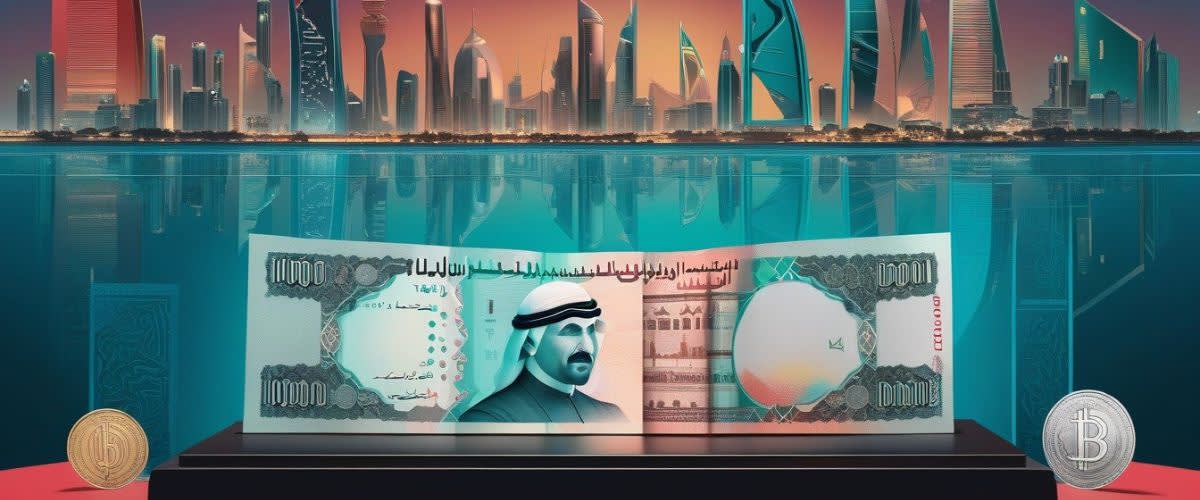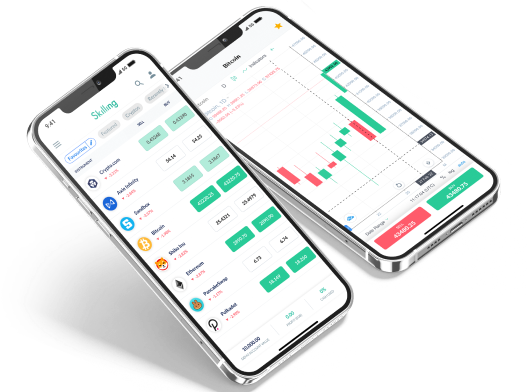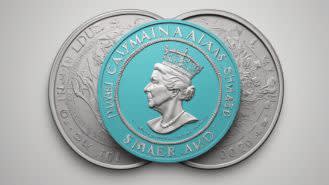Most expensive currency in the world in 2024

Most expensive currency in the world
Wondering what the most expensive currencies in the world in 2024 are? (and it’s not the US dollar)
As of 2024, the Kuwaiti Dinar is considered to be the most expensive currency in the world. This is due to the country's substantial oil reserves and its status as a major oil-exporting nation. The value of the Dinar is closely tied to the price of oil, which has been on the rise in recent years.
Other currencies that are also considered expensive include the Swiss Franc, the US dollar, the Euro and the Australian dollar. These currencies are considered safe-havens and are often in demand during times of economic uncertainty.
Top Most expensive currencies in 2024
In 2024, the following currencies are considered to be the top 10 most expensive in the world:
Kuwaiti Dinar:
As the world's highest valued currency, the Kuwaiti Dinar is pegged to the US dollar and is valued at 1 KWD = 3.25 USD. The country's vast oil reserves and status as a major oil-exporting nation contribute to the high value of the currency.
Also known as the New Kuwaiti Dinar, is the currency of Kuwait. It was first introduced in 1960, replacing the Gulf Rupee at a rate of 1 Dinar = 13.33 Rupees.
In 1990, Iraq invaded Kuwait, and as a result, the Kuwaiti Dinar was withdrawn from circulation and replaced with the Swiss dinar. After the liberation of Kuwait, the Kuwaiti Dinar was reintroduced in 1991 at a rate of 1 KWD = 3.25 USD. In 2007, the Central Bank of Kuwait began issuing the "New Kuwaiti Dinar" as it’s known today.
The Kuwaiti Dinar is considered the strongest currency in the world in 2024, and is often sought after by investors looking for a safe place to park their money.

Experience Skilling's award-winning platform
Try out any of Skilling’s trading platforms on the device of your choice across web, android or iOS.

Bahraini Dinar:
The Bahraini Dinar is valued at 1 BHD = 2.65 USD, making it the second most expensive currency in the world. The country's strong economy and low inflation rate contribute to the high value of the currency. The Bahraini Dinar is the currency of Bahrain, an island country located in the Persian Gulf.
It was first introduced in 1965, replacing the Gulf Rupee at a rate of 1 Bahraini Dinar = 10 Gulf Rupees. And in 1971, it adopted a fixed exchange rate system, pegging the Bahraini Dinar to the US dollar at a rate of 1 BHD = 2.65 USD.
Similar to the Kuwaiti Dinar, in 2006 the Central Bank of Bahrain began issuing the "New Bahraini Dinar" which improved its security but with the same value.
It's important to note that Bahrain economy is not as dependent on oil as its neighbor countries, it has diversified its economy to industries such as finance, manufacturing, and tourism. Therefore, the Bahraini Dinar is not as closely tied to the performance of the oil market as other Gulf currencies.

Omani Rial:
The Omani Rial is valued at 1 OMR = 2.60 USD, making it the third most expensive currency in the world. The country's strong economy and low inflation rate, as well as its status as a major oil-exporting nation, contribute to the high value of the currency.

Jordanian Dinar:
The Jordanian Dinar is valued at 1 JOD = 1.41 USD, making it the fourth most expensive currency in the world. The country's strong economy and low inflation rate contribute to the high value of the currency.

British Pound:
The British Pound is valued at 1 GBP = 1.28 USD, making it the fifth most expensive currency in the world. The country's strong economy and status as a major financial center contribute to the high value of the currency.

Cayman Islands Dollar:
The Cayman Islands Dollar is valued at 1 KYD = 1.20 USD, making it the six most expensive currency in the world. The Cayman Islands, a British Caribbean territory, is renowned as an offshore financial hub. The Cayman Islands dollar, introduced in the 1970s, maintains a fixed exchange rate with the US dollar.

Gibraltar Pound:
The Gibraltar Pound is valued at 1 GIP = 1.27 USD, making it the seventh most expensive currency in the world. Located at the southernmost point of Spain, Gibraltar is a British territory that spans only 2.6 square miles. The Gibraltar pound, which was first introduced in the 1920s, maintains parity with the British pound, meaning one GIP is equivalent to one GBP.

Swiss Franc:
The Swiss Franc is valued at 1 CHF = 1.17 USD, making it the eighth most expensive currency in the world. The Swiss franc, serving as the official currency of Switzerland and its petite neighbour Liechtenstein, is perceived as a secure option due to Switzerland's political stability. Introduced in 1850, the Swiss franc was momentarily pegged to the euro before transitioning to a free-float system.

Euro:
The Euro is the official currency of the European Union and is used by many countries in the region. It is valued at 1 EUR = 1.10 USD, making it the sixth most expensive currency in the world.

US Dollar:
The US dollar is the world's primary reserve currency and is used in international trade. It is valued at 1 USD = 1.00 USD, making it the tenth most expensive currency in the world.
It is stated that the US Dollar will always be the most widely traded currency. It is a universal currency supported by the influence of the US in world politics.
The United States of America (USA) is regarded as the world's superpower. The value of the USD has significantly risen over time.

Risks when trading expensive currencies
When trading expensive currencies such as the Kuwaiti Dinar, Bahraini Dinar, or Omani Rial, there are a few key risks to be aware of:
- Volatility
- These currencies are often subject to large fluctuations in value, making them riskier to trade than more stable currencies. Volatility can be caused by changes in global economic conditions, political events, or natural disasters.
- Currency Pegs
- The Kuwaiti Dinar, Bahraini Dinar, and Omani Rial are pegged to the US dollar, which means their value is closely tied to the value of the US dollar. This can make them less predictable and harder to trade, as fluctuations in the value of the US dollar can have a significant impact on the value of these currencies.
- Economic Dependence
- These currencies are closely tied to the performance of the oil market, which is subject to fluctuations in demand and supply. If the oil market is performing poorly, this can have a negative impact on the value of these currencies.
- Political instability
- These countries have a higher risk of political instability, as any political events or changes can have a significant impact on the value of their currencies.
- Lack of Liquidity
- These currencies are less frequently traded which means that the market depth and liquidity is not as high as it is for major currencies, which can make it harder to find buyers and sellers and can increase the spread between buying and selling prices.
Capitalise on volatility in Forex markets
Take a position on moving Forex prices. Never miss an opportunity.

Summary
It's important to keep in mind that the value of any currency can change rapidly based on a variety of factors, including economic conditions, political events, and even natural disasters. It's important to keep an eye on the markets and political developments in order to stay informed about any potential changes in the value of a currency.
FAQs
1. Why are these currencies so valuable?
The value of these currencies is largely linked to the wealth and stability of their respective countries, many of which have significant income from oil exports.
2. Does a high-value currency mean the country's economy is strong?
Not necessarily. A high-value currency can be indicative of a strong economy, but it's not the only measure. Other economic indicators such as GDP, employment rate, and trade balance also play crucial roles.
3. How often do currency values change?
Currency values fluctuate regularly due to a variety of factors, including changes in supply and demand, economic indicators, geopolitical events, and market speculation.
4. Are these currencies widely accepted for international transactions?
Acceptance of a currency for international transactions depends on various factors, including the stability of the currency and its convertibility. Generally, globally recognized currencies like the US Dollar, Euro, and British Pound are more widely accepted.
Past performance does not guarantee or predict future performance. This article is offered for general information and does not constitute investment advice. Please be informed that currently, Skilling is only offering CFDs.
Do not stop learning about the financial markets
We’ve got a whole host of resources that are ready and waiting to educate newcomers to trading CFDs online, including:
- CFD trading account types
- Choose the trading account that suits your trading best
- CFD trading basics
- Learn the core principles of trading the financial markets using CFDs.
- CFD trading psychology
- Discover the five rules of thumb to mentally master the stock markets.
What is Forex trading?
Forex trading is the buying and selling of currencies on the foreign exchange market with the aim of making profit.Forex is the world's most-traded financial market, with transactions worth trillions of dollars taking place every day.
What are the benefits?
- Go long or short
- 24-hour trading
- High liquidity
- Constant opportunities
- Trade on leverage
- Wide range of FX pairs
How do I trade Forex?
- Decide how you'd like to trade Forex
- Learn how the Forex market works
- Open a Skilling CFD trading account
- Build a trading plan
- Choose a trading platform
- Open, monitor and close your first position










